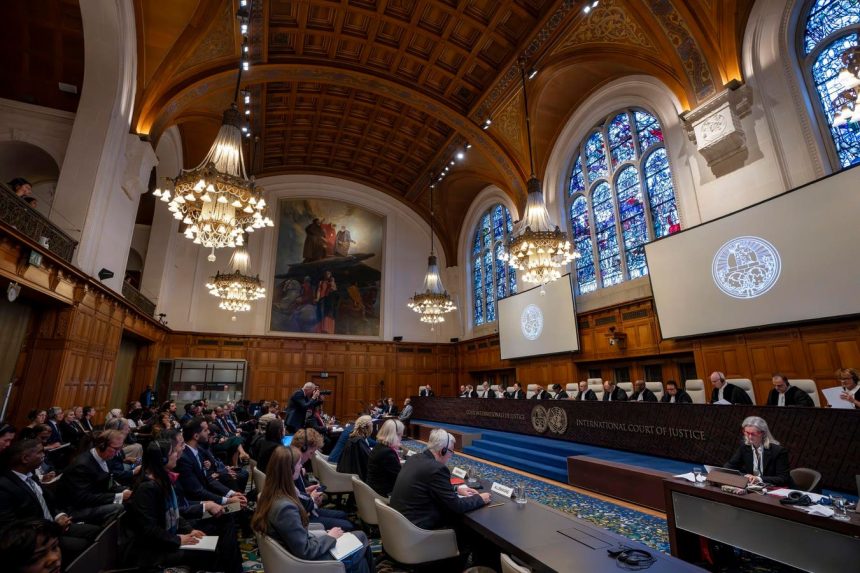The International Court of Justice and the Future of Climate Change Litigation: A Deep Dive into the Advisory Opinion Hearings
From December 2nd to 13th, 2023, the International Court of Justice (ICJ), also known as the World Court, held pivotal oral hearings concerning its forthcoming advisory opinion on states’ obligations regarding climate change. Prompted by a request from the United Nations General Assembly (UNGA), spurred by the island nation of Vanuatu, the ICJ is tasked with clarifying the existing financial liabilities nations bear for their contribution to climate change and the necessary actions to mitigate its effects. The advisory opinion, while not legally binding, carries significant weight, potentially shaping future climate-related litigation and legislative efforts. The hearings provided a platform for over 100 countries and parties to present their arguments, highlighting a central point of contention: the legal obligations of fossil fuel-producing nations to curtail production and subsidization.
The ICJ, established in 1945 under the UN Charter, serves as a neutral arbiter for resolving international legal disputes. Comprised of 15 judges elected by the UNGA and UN Security Council for nine-year terms, the court ensures no single country has more than one judge serving concurrently. Vanuatu’s request, formally presented to the UNGA on March 29, 2023, underscores the urgency of the climate crisis, particularly for vulnerable island nations facing existential threats from rising sea levels and extreme weather events. The ensuing hearings delved into the complexities of international law, particularly the Paris Agreement, and its implications for national climate action.
A key point of divergence emerged during the hearings concerning the responsibilities of states where fossil fuels are produced. While the majority of arguments centered on the Paris Agreement’s commitment to reducing greenhouse gas (GHG) emissions, a sharp divide appeared regarding the obligation to curb fossil fuel production and subsidies. This disagreement reflects the inherent tension between national economic interests, particularly for countries heavily reliant on fossil fuel production, and the global imperative to transition towards a sustainable future.
At the conclusion of the hearings, four judges posed pertinent questions to the participating states, requiring written responses by December 20th. Judge Sarah Cleveland of the United States specifically inquired about the international legal obligations of states with fossil fuel production within their jurisdictions to protect the climate system and environment from anthropogenic GHG emissions, including the issue of subsidies. This question effectively brought the central debate into sharp focus, compelling states to articulate their legal positions on a highly contentious issue.
The responses to Judge Cleveland’s question revealed a spectrum of perspectives. The United States denied any specific international legal obligations related to fossil fuel production or subsidization, while the United Kingdom argued that the Paris Agreement, through its mechanisms for updating nationally determined contributions (NDCs), implicitly requires states with fossil fuel production to address their climate impact. Russia similarly argued that international climate law focuses on reducing emissions, not sources, asserting that producing states bear no greater responsibility than consuming states.
In contrast, the Organisation of African, Caribbean and Pacific States (OACPS) argued that existing international law, including the duty of due diligence and the prevention principle, mandates phasing out fossil fuel production and subsidies. They linked this obligation to human rights law, marine environmental protection, and the right to self-determination. Mexico emphasized the importance of a just and equitable transition away from fossil fuels, acknowledging the economic and social challenges, particularly for developing countries, and highlighting the principle of Common but Differentiated Responsibilities and Respective Capabilities (CBDR-RC).
Kuwait asserted states’ sovereign right to exploit natural resources and denied specific international obligations to limit fossil fuel production, emphasizing developing countries’ unique challenges in transitioning away from fossil fuels. India echoed this sentiment, highlighting the historical global use of fossil fuels and the right to utilize natural resources for development, while also noting the role of subsidies in poverty alleviation and domestic energy security.
The European Union stated that no specific legal obligations exist regarding subsidies for fossil fuel production. COSIS, representing small island states, argued that the best available science necessitates a transition away from fossil fuels, implying a specific obligation under international law. China contended that neither the UNFCCC, Kyoto Protocol, nor the Paris Agreement impose specific obligations on fossil fuel producers, citing states’ sovereign right to exploit resources while acknowledging the challenges faced by fossil fuel-dependent economies. Finally, Canada reiterated the principle of state sovereignty over natural resources and argued that the Paris Agreement leaves the choice of mitigation measures to individual states. The Bahamas argued for substantial and urgent reduction in fossil fuel use, citing the current scientific consensus and the precautionary principle, while also cautioning against fossil fuel subsidies and emphasizing the need for a transition away from fossil fuel production.
The diverse responses underscore the profound legal and political challenges inherent in addressing climate change, particularly in the context of fossil fuel production and consumption. The ICJ’s forthcoming advisory opinion will be a landmark moment in international climate law, offering crucial guidance for future legal disputes and potentially shaping the trajectory of climate action globally. The opinion’s impact will likely be felt most acutely in vulnerable countries like Vanuatu, who are on the front lines of the climate crisis and seeking legal avenues to hold major emitters accountable.



